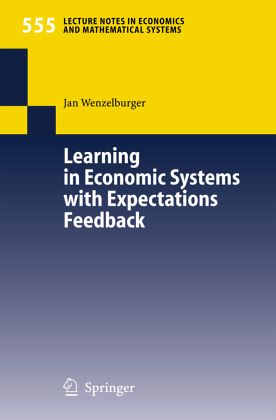Nicht lieferbar

Learning in Economic Systems with Expectations Feedback
Versandkostenfrei!
Nicht lieferbar
Recently, more and more economists have abandoned the assumption that agents have perfect knowledge about the economic environment in which they live. Instead the focus has been directed toward scenarios in which agents' views of the world may be erroneous.
An open issue is how to describe plausible rules, according to which expectations are formed and updated over time. The book introduces the concept of a perfect forecasting rule that generates rational expectations in the classical sense, thus reconciling the traditional view with behaviorist approaches.
It argues that successful learning schemes should aim at estimating the correct market structure from available observations, while taking into account the impact of forecasting on future data.
An open issue is how to describe plausible rules, according to which expectations are formed and updated over time. The book introduces the concept of a perfect forecasting rule that generates rational expectations in the classical sense, thus reconciling the traditional view with behaviorist approaches.
It argues that successful learning schemes should aim at estimating the correct market structure from available observations, while taking into account the impact of forecasting on future data.
Recently economists have more and more focussed on scenarios in which agents' views of the world may be erroneous.
These notes introduce the concept of perfect forecasting rules which provide best least-squares predictions along the evolution of an economic system.
The framework for nonparametric adaptive learning schemes is developed and it is argued that plausible learning schemes should aim at estimating a perfect forecasting rule taking into account the correct feedback structure of an economy.
A link is provided between the traditional rational-expectations view and recent behavioristic approaches.
These notes introduce the concept of perfect forecasting rules which provide best least-squares predictions along the evolution of an economic system.
The framework for nonparametric adaptive learning schemes is developed and it is argued that plausible learning schemes should aim at estimating a perfect forecasting rule taking into account the correct feedback structure of an economy.
A link is provided between the traditional rational-expectations view and recent behavioristic approaches.




